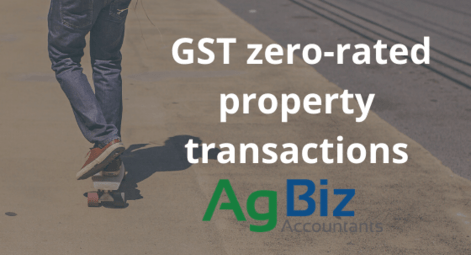We regularly review land transactions where either the purchaser or vendor are GST registered, but the other party is not. This inconsistent nature of each parties GST status may result in some uncertainty over the price of the land and have potential significant consequences.
This article outlines the GST status of contracts based on different circumstances
We normally experience these types of transactions when:
- purchasing or selling lifestyle blocks
- purchasing new properties from GST registered developers
- property developers or builders buying or selling land
No vendor wants to sell a property only to find out they have an unexpected GST bill to pay (see example 3). Likewise, no purchaser wants to purchase a property and find out they must pay an additional 15%, being the GST component (see example 4).
If either party is unclear on the contract, the price may be different to what was expected and/or a material amount of GST may be payable to IRD. If you are unsure, we recommend that you contact us to review the price and GST status on the agreement for sale and purchase (before signing!)
GST Compulsory Zero-rating
When two parties are GST registered, and use the land to make taxable supplies, the transfer of the land must be zero rated for GST purposes. Zero rated still means that GST applies; however, it is charged at 0%, ($0).
The GST status of the price
An agreement for sale and purchase requires the purchaser to state if the price is
- GST inclusive, or,
- Plus GST if any
In both situations, to calculate the final purchase price we need to know the GST status of both the vendor and purchaser.
GST registered vendor selling land
There are four possible GST outcomes of land sales as outlined in the table below

1. Both vendor and purchaser GST registered – Contract GST inclusive
Because both parties are GST registered, the transaction will be GST zero rated. If the contract price was $500,000 GST inclusive, $500,000 would change hands between the parties and the GST would be 0% (or $0). Neither party is required to pay or claim GST from IRD.
2. Both vendor and purchaser GST registered – Contract plus GST if any
Because both parties are GST registered, the transaction will be GST zero rated. If the contract price was $500,000 plus GST in any, $500,000 would change hands between the parties and the GST would be 0% (or $0). Neither party is required to pay or claim GST from IRD.
3. Vendor GST registered, purchaser not GST registered – Contract GST inclusive
The vendor must charge the purchaser GST at 15% which is included in the contract price. If the contract price was $500,000 GST inclusive, $500,000 would change hands between the parties. Then, the vendor would need to return $65,217 (15%) of GST to IRD.
4. Vendor GST registered, purchaser not GST registered – Contract plus GST if any
The vendor must charge the purchaser GST at 15% which must be added to the contract price. If the contract price was $500,000 plus GST if any, $575,000 would change hands between the parties. Then, the vendor would need to return $75,000 (15% GST) of GST to IRD.
Vendor not GST registered
Because the vendor is not GST registered, they cannot charge the purchaser GST. Therefore, the contract price (inclusive of GST, or plus GST if any) is irrelevant and will be the final price.
If the purchaser is GST registered, and will use the property for making taxable supplies, the purchaser may be able to claim a secondhand goods claim. This results in them receiving a GST refund from IRD on the purchase of the property.
Would you like to know more
Contact Tim Doyle or Jane Evans today for a no obligation phone call or meeting on 07 823 4980 or contact us. Our office is in Cambridge, NZ, but distance is no problem. We have many international and national clients.
This material has been prepared for informational purposes only, and is not intended to provide, and should not be relied on for, tax, legal or accounting advice. You should consult your own tax, legal and accounting advisors before engaging in any transaction.





